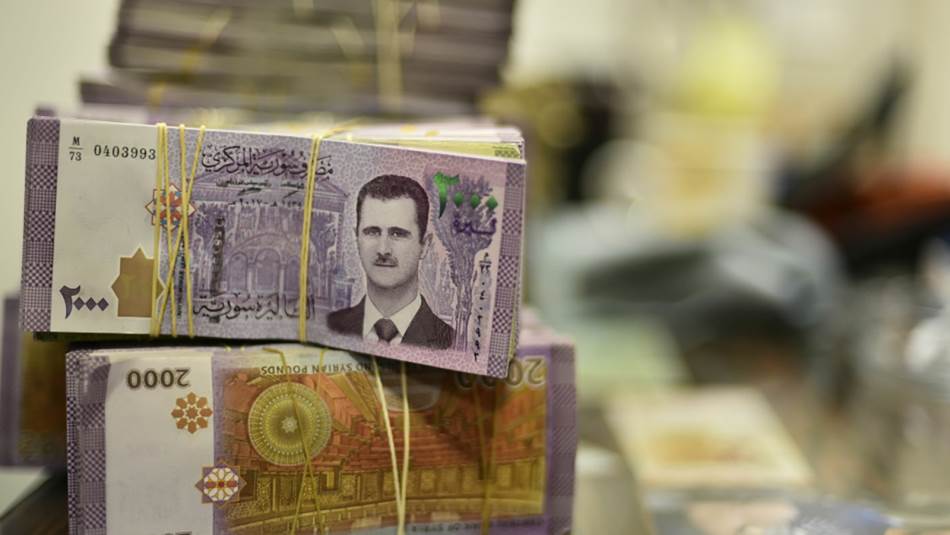An investigation conducted by the Syrian Investigative Journalism Unit (Siraj), in collaboration with Daraj, has delved into the inner workings of Syrian currency printing operations in Russia. This effort is part of the “Cyprus Secrets” project spearheaded by the International Consortium of Investigative Journalists (ICIJ), engaging over 250 journalists from 69 media outlets across 55 countries.
The revelation sheds light on the alarming position of the Syrian state, ranking among the top three countries globally in terms of inflation volume. The substantial surge in inflation, coupled with the consequential severe depreciation of the national currency, can be attributed to various factors. Foremost among these is the printing of significant amounts of local paper currency without adequate backing in foreign currencies, gold, or any tangible economic production.
Pounds without reserve
The Syrian regime turned to printing Syrian currency in Russia as a result of its evident cash shortage to meet expenses, thereby exacerbating the annual budget deficit. The persistent printing of money without adequate production cover or reserves in foreign currency or gold resulted in substantial inflation and the devaluation, ultimately leading to the collapse of the Syrian pound.
The funds generated from the printing of banknotes were predominantly allocated to cover military and civilian salaries, along with routine state expenditures.
Secrets of Cyprus
The economic and financial challenges prompted the regime to take immediate action, one of which was the printing of significant amounts of money. Two companies located on the island of Cyprus were utilized to facilitate these printing operations. Despite government assurances that this measure would not adversely affect the economic situation, there remains considerable uncertainty surrounding the specifics of this process.
The investigation conducted by the Syrian Investigative Journalism Unit, with the full report available on Daraj, unveils the clandestine Syrian money printing operations overseen by the Central Bank of Syria. These operations were facilitated through the influence and services provided by two companies based in Cyprus, a member of the European Union, owned by a Syrian-Russian businessman.
The investigation further exposes how financial services firms based in Cyprus enabled Russia’s elite, including individuals within President Vladimir Putin’s inner circle, to safeguard their wealth. Following Russia’s invasion of Ukraine in 2022, these firms also aided in protecting billions of dollars in assets from the looming threat of sanctions.
Analysis by the ICIJ of over 3.6 million leaked documents revealed that nearly 800 companies and trusts registered in secret jurisdictions were owned or controlled by Russians sanctioned since 2014.
Additionally, the international investigation, in which Sarraj’s unit also participated, uncovered communications between the regime of Syrian President Bashar al-Assad and a broker registered in Cyprus regarding the procurement of US oil drilling equipment during the height of the Syrian civil war, despite existing US and European sanctions at the time.
These revelations include the involvement of more than 650 Cypriot companies and funds, encompassing parent companies of Russian properties, subsidiaries of Russian conglomerates, and obscure entities utilized to conceal investments in globally renowned real estate, yachts, and artworks.
This article was translated and edited by The Syrian Observer. The Syrian Observer has not verified the content of this story. Responsibility for the information and views set out in this article lies entirely with the author.


